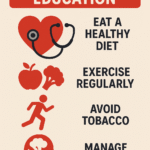
Following Gen Gene Editing Advancements in CRISPR Technology

Next-Gen Gene Editing: CRISPR Technology Revolution
Why it Matters Now
CRISPR, a revolutionary tool for gene editing, is altering the healthcare landscape. Its potential to treat genetic disorders lies at the forefront of modern medicine. Are you ready for this technology?
- Game-Changer for Patients: Personalized therapy would be the norm.
- Research Revolution: Helps researchers to explore genetics and avoid diseases faster.
- Provider Innovation: Jointly developed products and expedited approvals to ensure safety while improving treatments. CRISPR is beyond mere science; it signals hope. Faced with the future, the need to comprehend the implications of CRISPR should not be reserved for those in the healthcare system but an obsession for society as a whole. We need to think about the future and have a healthy way of life!
Historical Context of Gene Editing
It is a known fact that CRISPR technology has been able to alter the entire face of the healthcare landscape. Knowledge of its root brings understanding of its current state.
Evolution in the Biotech Sector
- From Simple Techniques to Advanced Tools: Genetic modification was initially tricky and slow. However, today, CRISPR technology allows us to act with precision and speed.
- Accessibility: Once a privilege enjoyed by researchers only, now it is open to the public, allowing everyone to be involved in research.
Impact on Medicine, Technology, and Public Health
- Transformative Therapies: CRISPR brought novel methods of conducting genetic disease and cancer treatment, which are back on the map in the fields.
- Ethical Discussions Heated Up: With more and more options being available, debates emerge on whether these things are moral, especially those accessible to everybody.
- Public Health Opportunities: The potential exists for preventing infectious diseases in communities. CRISPR is a tool and a revolution; that’s what CRISPR Technology is like: it is reshaping our course of genomic medicine and, thus, the future of healthcare.
Current Landscape of Next-Gen Gene Editing
Advances in CRISPR Technology
The healthcare sector is heading to a new state because of CRISPR technology. The potential of the latest technologies is already seen in how we can treat any disease using gene therapies.
- Precision Medicine: Bespoke cures and treatments will no longer be just a dream of the future but a reality that can be achieved with gene therapy.
- Gene Therapy: You can now have your mutations fixed. If it is done correctly, there is the potential to look into the future without fearing unwanted conditions.
Impact on Healthcare
The latest improvements represent significant progress and efficiency, as evidenced by the following:
- Cost Reduction: Giving the tests to the general public for a lower cost.
- Faster Trials: There are now quicker clinical trials because the patients can access newer medications more quickly. Bold Statement: CRISPR is the means of no longer being a single tool but the future of healthcare through which one can find cures for the untreatable.
Transformative Impact of Next-Gen Gene Editing
Enhancing Health Outcomes
Veteran gene editing through CRISPR and similar technology enables healthcare practitioners to tout. This is leading to the enhancement of people’s health through this new technology in the following ways:
- Personalized treatments: The changing of therapies due to a singular genetic gift from the parents to the child is becoming less of a hazy mirage and more of an actuality.
- Breakthrough cures: Some diseases paling in the face of life and so perceived as incurable included problems like single-gene (note other variations if necessary). Imagine a future where:
- Chronic conditions are manageable.
- Families breathe easier as genetic risks are minimized.
Real-Life Experiences
Patients from all walks of life experience quality-of-life improvements after undergoing the treatment. Most are hopeful and thankful, concentrating on how brand-new medication advances personal freedom and endurance. In short, The future of healthcare is bright, and CRISPR brings us closer to a healthier world.
Impact of Next-Gen Gene Editing on Healthcare Professionals
Challenges and Opportunities
Next-gen gene editing, especially CRISPR technology, brings challenges and opportunities to healthcare professionals and institutions.
- Training Requirements: Technical developments in medical science call for all-around education, which is quite taxing on personnel, and recruiting new genetics-oriented staff is essential.
- Cost Implications: Initial investment for each establishment to obtain new technologies and make the necessary advancements in the retraining of personnel can overdo funding, particularly for institutions with small capacity.
- Implementation Issues: Imprinting convoluted gene editing tricks onto conventional systems may lead to mistakes and require extensive research. On the flip side, however:
- Resource Management: Better gene therapies may cut the cost of medical services through shorter and more practical courses and serve as a long-term solution to the general financial situation.
- Patient Care: The new technology of more preciseness in operations practised on genetic defects is a significant factor affecting patient outcomes. This alone leads to the advent of personalized medicine. The future of patient care through CRISPR is on the verge of substantial changes despite facing hardships.
Embracing Next-Gen Gene Editing
Key Benefits of CRISPR in Healthcare
Presenting CRISPR technology in the medical industry today is resulting in paradigm-changing answers.
- Enhanced Treatment Precision: With CRISPR, therapies can be aimed well at genetic mutations. This would mean less severe side effects and more successful treatments.
- Research Efficiency: It speeds up drug experimentation, making it possible for scientists to do numerous experiments quickly and iterate them at will.
- Improved Patient Outcomes: Personalized medicine interventions through CRISPR are found to give positive results with a remarkable increase in the survival rates of genetically related medicaments. In brief, According to this vision, the tools are at the centre of the future of healthcare. CRISPR innovation has the potential to transform the unwell to the healthy, and thus, the longing to be delivered from sickness can become a reality. Don’t you think healthcare should be this life-changing? Problem Analysis concerning Next-Generation Gene Editing and Ethical considerations of patients, researchers, and regulators are the main issues of the fast-paced technology development.
Challenges Faced by Patients, Researchers, and Regulators
CRISPR is being developed at a rate that leads to critical ethical issues and challenges, which must be tackled immediately. Here are some discussions to be explored:
- Informed Consent Issues: Patients may not know the outcomes of gene editing.
- Equity in Access: The majority of the new procedures would likely spot a division in economic status between the people originally rich and poor.
- Long-Term Effects Uncertainty: Alterations in genes could, in turn, lead to several unexpected outcomes, which are, for some part, impossible to foresee even at the time. Researchers and Regulators face their dilemmas:
- Regulatory Lag: The existing laws are finding it challenging to keep up with the rapid pace of innovations.
- Moral Questions: The line between treatment and enhancement of the human body is becoming so thin that it complicates ethical frameworks. Balance is a must. For the future of gene editing after successive waves, it is interesting to have an ongoing dialogue among patients, researchers, and regulators.
Engaging with Next-Gen Gene Editing
Embrace the Future with CRISPR Technology
Next-gen gene editing is bringing a revolution to healthcare. The curiosity of those of us who want to stay in the loop will be satisfied by this means:
- Stay Informed: Stick to credible blogs and podcasts where experts walk through the CRISPR advancements. The knowledge is where the power is.
- Participate in Online Webinars: Participate in discussions to receive first-hand insights. Q&A sessions are frequently held on these platforms—try to ask questions.
- Join Community Forums: Talk to people and learn new things. Questions included on the agenda usually evoke lively debates, so do not hesitate to pose them!
- Advocate for Education: Work with schools to add more genetic knowledge classes. Turn your inquisitiveness into the first step in this groundbreaking healthcare change!
The Future of Gene Editing in Healthcare
Transformative Possibilities Await
The next generation of gene editing technology, particularly CRISPR technology, is transforming healthcare. We should look forward to promising innovations that enrich our curative medicine and make it more targeted.
- Disease Eradication: A world where genetic anomalies are not a significant issue anymore is unimaginable.
- Personalized Therapies: Customizing treatments to individual genetic profiles will be the norm.
- Rapid Diagnostics: Advanced CRISPR uses these tools ability to detect anticipated diseases instantly.
- Career Opportunities: The biotech sector is thriving! Besides the mentioned roles in genetic counselling, bioinformatics, and laboratory automation that are becoming vital, we can expect other promising jobs to open in this sector, offering excellent career paths for those enthusiastic about science and innovation. This will only be the beginning of a healthcare revolution that is beyond amazing!
The Revolution in Healthcare: Next-Gen Gene Editing
Key Takeaways
The healthcare field is rapidly developing due to the incredible enhancements in CRISPR technology. The key points are:
- Gene editing has the potential to completely change the way we treat illnesses by curing diseases that have been previously thought to be incurable.
- Owning the needed information on the new technology driver of development.
- Applying these trends results in collective well-being, and people need to be the main initiators of health management. The only rule is to be involved!
- Incorporate your doctor into the conversation about how changes and problems might happen over time, as well as their applications and potentials that can be used in your case. Keep on the most advanced side; it is the way to register your health and future!












Post Comment